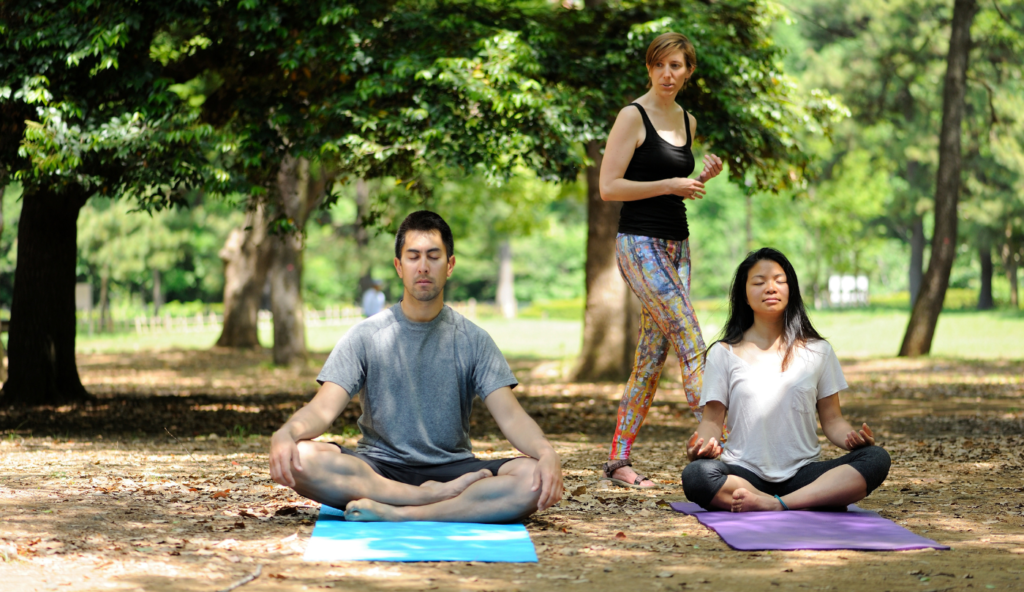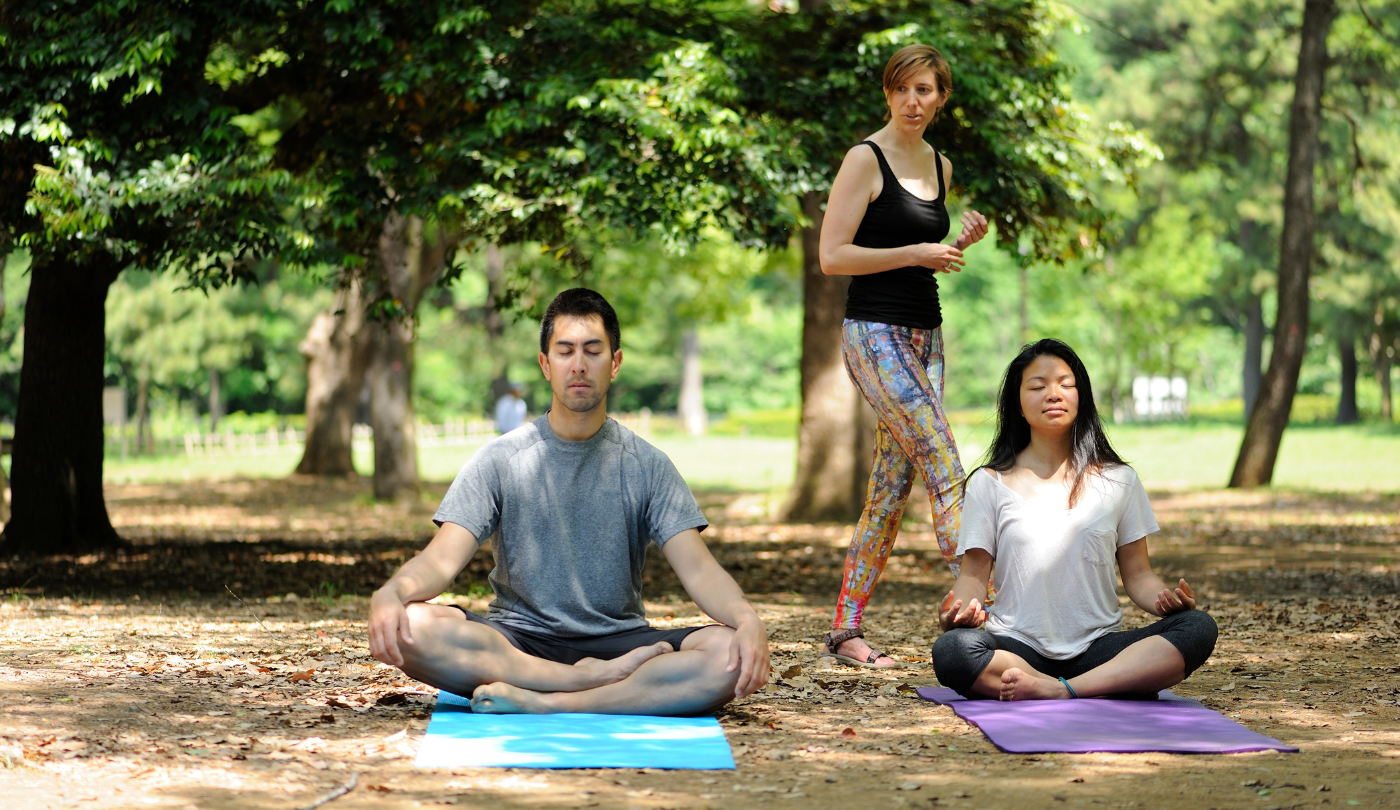Creating balance and well-being can feel like a daunting task in the world we live in at the moment. Right?
That is where wellness coaches come by, guiding people towards healthier cultures and better overall wellness. In this blog, we’ll look into the world of certified wellness coaches, covering the foundations of wellness coaching, the process of becoming a certified coach, and how digital technology is revolutionizing remote guidance.
Foundation of Wellness Coaching
Wellness coaching stands upon a solid frame that includes principles and approaches aimed at creating holistic well-being. Let’s look into the aspects of foundations of wellness coaching:
1. A Comprehensive Approach: A holistic viewpoint that recognizes the interdependence of all things is the foundation of wellness coaching. In contrast to conventional healthcare methods, which prioritize treating symptoms alone, wellness coaching considers the full individual—mind, body, and spirit.

This holistic method acknowledges that a person’s entire health and wellness are influenced by a variety of elements, including connections, emotional well-being, physical activity, stress management, sleep quality, and diet.
2. Client-Focused Approach: The foundation of wellness coaching is the idea that clients are naturally resourceful and capable of transforming their lives for the better. From a client-centered standpoint, coaches see their clients as friends in the coaching process rather than as obedient recipients of guidance. Through the development of a collaborative relationship based on trust, empathy, and nonjudgment, coaches enable their clients to discover their values, connect with their inner wisdom, and create goals that are relevant to their particular situation.

4. Evidence-based Practices: Effective wellness coaching is based on evidence-based practices that draw from disciplines similar to psychology, behavioral wisdom, nutrition, exercise physiology, and public health. Certified wellness Coaches use exploration-backed ways and interventions to expedite change, bring motivation, build self-awareness, improve self-management skills, and promote sustainable lifestyle habits. By staying informed about the latest scientific findings, coaches ensure that their coaching practice is informed by the most current knowledge available.

5. Growing Self-Awareness and Mindfulness: Wellness coaching encourages the growth of mindfulness and awareness – the capability to purposely observe and reflect upon one’s studies, passions, and actions without judgment. Through practices similar to awareness contemplation, journaling, deep breathing exercises, and guided self-reflection, coaches help their clients develop more mindfulness. This heightened sense of mindfulness serves as a foundation for self-discovery, particular growth, and purposeful living, enabling clients to make further informed choices and live in alignment with their values and choices.

Getting a Certified Wellness Coach The Path to Expertise
Becoming a Certified Wellness Coach or trainer involves research, educating the self, growth, and professional development. Here is a step-by-step companion to becoming an expert in the field:

1. Education and Training: Start by gaining a solid foundation in health and principles. Numerous aspiring coaches pursue formal education in fields similar to nutrition, exercise wisdom, psychology, or public health. Also, there are multitudinous training programs specifically designed for wellness coaches.
2. Certification: While certification isn’t obligatory, it can enhance your credibility and marketability as a wellness trainer. Look for estimable certification programs that are accredited by honored associations similar to the International Coach Federation (ICF) or the National Board for Health and Wellness Coaching (NBHWC). These programs generally involve coursework, mentorship, and practical experience.
3. Practical Knowledge: Work with clients to apply your expertise. Acquiring practical experience is crucial for improving your coaching skills, whether it is through internships or launching your own coaching business. Certified Wellness Coaches can leverage this practical knowledge to better serve their clients and enhance their coaching effectiveness.
4. Continuing Education: Since the profession of wellness coaching is ever-evolving, it’s critical to stay current on the newest research and developments. To solidify your knowledge and provide superior service to your clients, invest in continuing education and professional development.
Digital Wellness Coaching
In today’s digitally-driven world, technology has become an integral part of our daily lives, including how we approach health and wellness. Digital wellness coaching, including Certified Wellness Coaches, uses the power of technology to give remote guidance, support, and responsibility to people seeking to improve their well-being. Let’s explore in detail how digital technology plays a role in wellness coaching.

1. Virtual Coaching Platforms: Digital wellness coaching platforms offer an accessible way for Certified Wellness Coaches and clients to connect. These platforms generally include features similar to video conferencing, messaging, and scheduling tools, allowing for real-time communication and commerce between coaches and clients irrespective of their geographical locations.

Virtual coaching platforms make it easier for people to seek guidance and support from good coaches without the constraints of time or place.
2. Mobile Apps and Wearable Technology: Mobile apps and wearable bias play a significant part in digital wellness coaching by furnishing guests with tools to track their progress, cover their health criteria, and admit substantiated feedback and guidance in real time. These apps and biases can track colorful aspects of health and wellness, including physical exertion, sleep patterns, nutrition input, stress situations, and more.

By collecting and assaying data on guests’ actions and habits, Coaches can gain precious perceptivity into their guests’ requirements and preferences, enabling them to conform their coaching interventions consequently.
3. Social Media and Online Communities: Social media platforms and online communities are valuable for digital wellness coaching as they create a space for information sharing, gathering support, and creating a sense of community among clients and coaches.

Certified Wellness Coaches can work on social media channels similar to Facebook groups, Instagram, LinkedIn, and Twitter to partake in educational content, motivational content, success stories, and tips for healthy living. Clients can establish a sense of belonging and interact with like-minded individuals through online groups.
4. Data Analytics and Artificial Intelligence (AI): These two cutting-edge technologies are transforming digital wellness coaching by giving Certified Wellness Coaches the ability to analyze problems, find trends in big datasets, and provide customers with findings that can be verified. By employing the power of machine literacy algorithms, coaches can produce algorithms that can better clients’ health data, identify trends and correlations, and give targeted recommendations for change.

For illustration, AI-powered coaching platforms can analyze clients’ eating habits, exercise routines, sleep patterns, and stress situations to give substantiated nutrition plans, drill rules, sleep hygiene tips, and stress operation strategies.
5. Online Health and Medication: With the rise of telehealth and telemedicine services, digital wellness coaching is increasingly integrated into broader healthcare ecosystems, allowing for flawless collaboration between Certified Wellness Coaches and healthcare providers.

To sum up, Certified Wellness Coaches or trained wellness coaches are essential in assisting individuals in reaching their well-being and health objectives. Coaches may help clients live happier, healthier lives by comprehending the principles of wellness coaching, appreciating the value of education and certification, and embracing the use of digital technologies for remote advice.
Ready to level up your well-being with OneLifeAtHome? Join OneLifeAtHome- global wellness community platform based in the UK. With over 200+ videos, live sessions, and a thriving community, we offer holistic health coach, wellness coaching, and health and wellness coaching services. Dive into a transformative learning experience where you’ll cultivate a holistic approach to life, honoring your mind, body, and soul. Sign up now to gain the tools and techniques for motivation, stress management, resilience building, and overall well-being enhancement.






